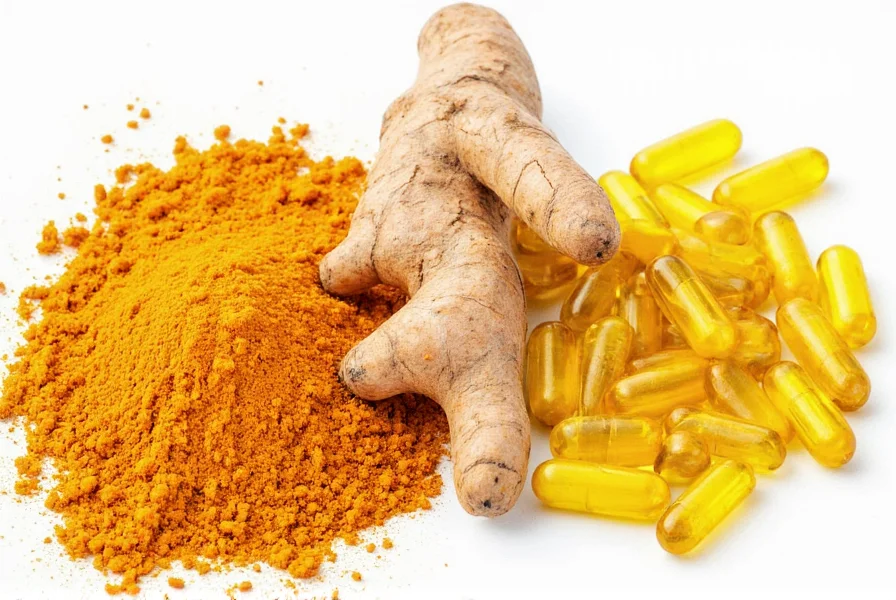Turmeric supplements have gained significant popularity in the wellness community, but what exactly are turmeric pills good for based on scientific evidence? This comprehensive guide examines the research-backed benefits, appropriate usage, and realistic expectations for this golden spice in pill form.
The Science Behind Turmeric Supplements
Turmeric (Curcuma longa) is a vibrant yellow spice commonly used in Indian cuisine and traditional Ayurvedic medicine for centuries. The active compound responsible for most health benefits is curcumin, which constitutes about 2-8% of turmeric root. Due to curcumin's low bioavailability in its natural form, supplements often include piperine (from black pepper) or use specialized formulations to enhance absorption.

Evidence-Backed Health Benefits of Turmeric Pills
When evaluating what are turmeric pills good for, it's essential to distinguish between well-established benefits and areas requiring more research. Here are the most scientifically supported uses:
Inflammation Reduction
Chronic inflammation contributes to numerous health conditions. Multiple studies, including a 2017 review in Journal of Medicinal Food, confirm that curcumin has potent anti-inflammatory properties comparable to some pharmaceutical drugs, but without the same side effects. This makes turmeric supplements particularly valuable for managing inflammation-related conditions.
Joint Health and Arthritis Management
Research published in the Journal of Alternative and Complementary Medicine demonstrated that 1,000 mg of curcumin daily significantly improved pain and function in osteoarthritis patients. Another study in Phytotherapy Research found curcumin as effective as ibuprofen for reducing knee osteoarthritis symptoms, with fewer gastrointestinal side effects.
| Condition | Research Support Level | Typical Effective Dose | Time to Notice Effects |
|---|---|---|---|
| Osteoarthritis | Strong (multiple RCTs) | 500-1,500 mg curcumin daily | 4-8 weeks |
| Rheumatoid Arthritis | Moderate | 500 mg curcumin 2x daily | 6-12 weeks |
| General Inflammation | Strong | 400-1,500 mg daily | 2-6 weeks |
| Heart Health | Preliminary | 500-1,000 mg daily | 8-12 weeks |
Antioxidant Properties
Curcumin's powerful antioxidant effects help neutralize free radicals and may boost the body's own antioxidant enzymes. This dual action potentially protects against oxidative stress, which contributes to aging and many diseases. A 2016 study in Oxidative Medicine and Cellular Longevity found curcumin supplementation significantly increased antioxidant capacity in healthy adults.
Heart Health Support
Emerging research suggests turmeric supplements may benefit cardiovascular health by improving endothelial function (the lining of blood vessels). A 2017 study in Nutrition Journal showed that 150 mg of curcumin daily improved endothelial function in postmenopausal women as effectively as aerobic exercise.
Cognitive Function
Preliminary evidence indicates curcumin may cross the blood-brain barrier and help clear amyloid plaques associated with Alzheimer's disease. While more research is needed, a 2018 study in the American Journal of Geriatric Psychiatry found that 90 mg of curcumin twice daily improved memory and attention in healthy older adults over 18 months.
What the Research Actually Shows: Managing Expectations
When considering what are turmeric pills good for, it's crucial to understand the limitations of current research:
- Bioavailability challenges: Pure curcumin has poor absorption; most effective supplements include absorption enhancers
- Dose dependency: Benefits typically require 500-2,000 mg of curcumin daily, far exceeding culinary use
- Timeframe: Most benefits require consistent use for 4-12 weeks
- Not a cure-all: Turmeric supplements work best as part of a comprehensive health approach
Proper Usage Guidelines
For those wondering how to use turmeric pills effectively:
Dosage Recommendations
The most effective doses in clinical studies range from 500-2,000 mg of curcumin daily, typically divided into two doses. Look for supplements providing:
- At least 95% standardized curcuminoids
- Black pepper extract (piperine) or other absorption enhancers
- Third-party testing verification
Timing Considerations
Take turmeric supplements with food, preferably containing healthy fats, to enhance absorption. Many people find taking them with breakfast and dinner provides consistent blood levels throughout the day.
Safety Profile and Potential Side Effects
Turmeric supplements are generally well-tolerated, but potential side effects include:
- Mild digestive issues (nausea, diarrhea) at higher doses
- Increased risk of bleeding when combined with blood thinners
- Potential interactions with diabetes medications
- Contraindicated for people with gallbladder issues
Consult your healthcare provider before starting turmeric supplements if you take medications or have underlying health conditions. Pregnant and breastfeeding women should avoid high-dose supplements.
Turmeric Pills vs. Other Forms
While culinary turmeric has benefits, supplements provide concentrated doses necessary for therapeutic effects. A teaspoon of turmeric powder contains only about 200 mg of curcumin, whereas supplements typically deliver 500-1,000 mg per dose. For specific health concerns like joint pain or inflammation management, supplements offer more reliable dosing than dietary sources alone.
Realistic Expectations for Turmeric Supplement Users
Understanding what turmeric pills are good for requires realistic expectations. They're not miracle cures but can be valuable components of a holistic health approach. For inflammation and joint health specifically, many users report noticeable improvement within 4-8 weeks of consistent use at appropriate doses. The benefits accumulate over time rather than providing immediate relief.











 浙公网安备
33010002000092号
浙公网安备
33010002000092号 浙B2-20120091-4
浙B2-20120091-4